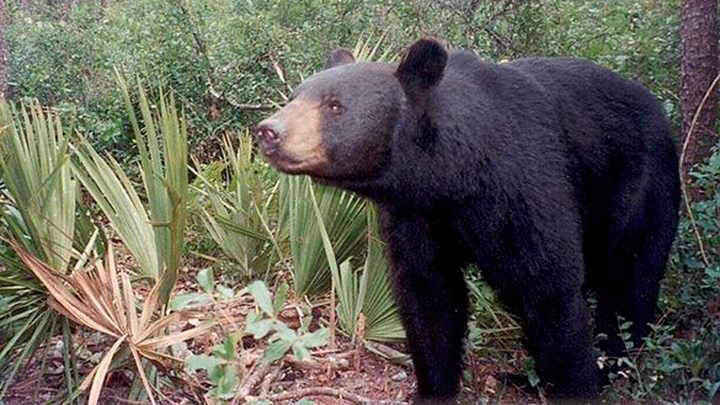
by Brian McCombie - Monday, May 19, 2025

In early May, Florida reported its first human fatality from a black bear attack.
The tragic event occurred near Jerome, Fla., the victim 89-year-old Robert Markel, who was killed by a black bear just outside his home. Markel’s dog was also killed.
Law enforcement and wildlife officials were quick to the scene. Personnel from the Florida Wildlife Commission (FWC) killed three bears in the area and unsuccessfully tried to trap a fourth, though the trapping attempt did produce bear DNA for testing. The three bear carcasses were transported to laboratories in Gainesville for necropsy and testing, along with DNA samples collected from physical evidence at the scene.
According to an FWC press release detailing the incident and the following investigation, Markel’s “preliminary cause of death was consistent with injuries caused by a black bear. Necropsy results revealed that one bear (263-pound male) contained the partial remains of Markel. DNA results received on Friday, May 9, positively identified that the 263-pound male’s DNA was present on Markel, inside his residence and on the dog’s body.”
This was the second black bear attack on a human in Florida in 2025, the first occurring in Silver Springs where a female black bear with young attacked a person in February. That attack was non-fatal, though FWC did not post other injury details.
The Markel attack occurred in the FWC’s South Bear Management Unit, home to the state’s third-largest bear population that was estimated at 1,044 animals in 2015. Undoubtedly, that number is larger today.
As FWC noted, “Demographic analysis indicates this population has a positive annual growth rate. The FWC received 16 bear-related calls within a 10-mile radius of nearby Copeland between May 5, 2024, and May 4, 2025, resulting in five site visits, five capture efforts, three bears that were relocated and hazed, and one bear that was humanely killed.”
The FWC receives an average of 6,300 bear-related calls every year. Since 1970, the agency has documented 42 incidents where wild black bears have made physical contact with people. Of these incidents, three of the people involved sustained injuries serious enough to warrant medical attention.
A Hunt?
In December 2024, FWC Bear Management Program staff presented FWC commissioners with a five-year update on implementing the FWC’s 2019 Florida Black Bear Management Plan. At the conclusion of this presentation, the commissioners directed FWC staff to return to a future commission meeting with options for implementing a potential bear hunt to manage the species’ population.
Just recently, the FWC released proposed guidelines for a hunt to be held this December, with bear hunting permits issued by a lottery. FWC commissioners will meet to discuss the proposal in the very near future.
According to the FWC, “Florida’s black bear population has surged from a few hundred bears in the 1970s to over 4,000 today, and the bear represents one of the Sunshine State’s most successful conservation efforts.”
Bear hunting was a Florida tradition from the 1930s until 1994. Florida black bears were on the state’s Threatened Species List from 1974 to 2012. In 2011, a review of available data determined that bears were no longer at high risk for extinction using the criteria in the FWC listing rule. That criteria included bear population size and trends, range sizes and trends, population concentrations, reproductive potential for recovery and ecological specialization.
Following that status change, a limited hunt opened in 2015, with approximately 300 bears taken amid backlash from animal rights extremists. Not surprisingly, those against legal, regulated hunting have publicly and loudly opposed a return to bear hunting, and there has not been a season since.
Earlier this month, anti-hunting advocates rallied at Lake Eola Park in Orlando to oppose a hunt after challenging the proposal during a virtual FWC commissioner meeting in April. They also have held rallies and protests at other locations to garner media attention. During these events, they’ve falsely claimed that a hunt is scientifically unwarranted and that the FWC should rely on non-lethal methods to control human-bear conflicts.
About the Author
Brian McCombie is a field editor for the NRA’s American Hunter and writes about firearms and gear for the NRA’s Shooting Illustrated. A member of the National Rifle Association and the National Shooting Sports Foundation, Brian enjoys hunting hogs, shooting 1911s, watching the Chicago Bears and relaxing with his two cats.
E-mail your comments/questions about this site to:
[email protected]
Proudly supported by The NRA Foundation and Friends of NRA fundraising.
